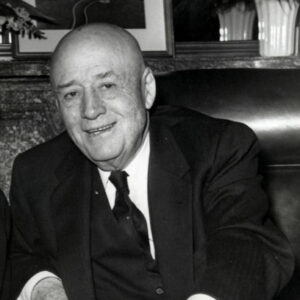GRAHAM: Dems’ Vote to Vacate Leaves Congress Powerless During ‘Israel’s 9/11’

When reports of kidnapped women and murdered children began pouring in Saturday from the massive Hamas attack on Israel, the response in Washington was to convene the “Gang of Eight.” Those are the eight key congressional leaders charged with overseeing military intelligence, and they are usually the first people briefed in such a crisis.
Only thanks to House Democrats, it is now the gang of seven. The speaker’s chair is empty, vacated by a vote of all 208 members of the House Democratic Caucus in support of Rep. Matt Gaetz, R-Florida, and seven fringe MAGA Republicans.
Unlike a typical leadership battle, Democrats weren’t backing an alternative candidate to take control. They didn’t even offer a leadership plan. Their only goal was to help what talk host Hugh Hewitt has dubbed the “Knucklehead Caucus” create chaos and promote GOP infighting while shutting down the House.
The Democrats’ plan worked. There is plenty of chaos in Washington today.
Unfortunately, there is far worse in Israel, and thanks to the Democrats’ success, a leaderless Congress is powerless to act. The House cannot pass legislation or approve military aid until the vacancy that Democrats helped create — purely for partisan political purposes — has been replaced.
“The emergency in Israel puts a spotlight on the state of paralysis in the House and completely unchartered legal territory the House is in,” reported CNN’s Annie Grayer.
Or, as moderate Republican Mike Lawler of New York put it, “This is why you don’t remove a speaker mid-term without cause. What an unmitigated sh*t show.
“Doing so as Israel faces an all-out attack is dangerous. Uncertainty and chaos in the U.S. breeds vulnerability around the world,” Lawler added.
Democrats remain unapologetic. Rep. Annie Kuster of New Hampshire, head of the New Democrat Coalition in the House, sent out a fundraising email Saturday morning — literally as the Hamas terrorists were rampaging across Israel — touting Democrats’ success in ousting the speaker.
The email included this description of Kuster’s vote to vacate: “As the Chair of the New Democrat Coalition, she worked to end the chaos and deliver bipartisan solutions for the American people.”
Voting with Gaetz and his fringe fellow travelers is certainly “bipartisan,” but how many Americans view it as a “solution”?
Meanwhile, Rep. Brian Fitzpatrick, R-Pennsylvania, was bemoaning the behavior of Democrats in the Problem Solvers Caucus who could have intervened to stop the chaos.
“The motion to vacate (the speakership) gets put on the floor, and we went to our (Democratic) colleagues and said, ‘Can you at least buy us some time?’” Fitzpatrick told Fox News. “Forty-eight hours. We can’t rewrite a 300-page rules package to make the House work more in a bipartisan manner in eight hours. It’s impossible.”
Fitzpatrick said Republicans asked Democrats in the Problem Solvers Caucus to vote “present” instead of advancing the motion to vacate. They refused.
“That’s all we were asking for was some time. … And that’s why there are so many Republicans in our group that are very, very upset, and add me to the list.”
And even if there hadn’t been an international crisis (there could be another one in Ukraine, Taiwan, North Korea, etc. tomorrow), former Democratic presidential candidate Michael Bloomberg points out that empowering Gaetz would still be a mistake.
He says House Minority Leader Hakeem Jeffries’ decision to “let (Kevin) McCarthy hang himself may have allowed Democrats to feel good in the moment, but Democrats now face the prospect of a speaker who will likely be to McCarthy’s right, and who will likely draw from his political demise the worst possible lesson: that the extremists must be heeded.”
Democrats engaged in childish partisanship for short-term gain, with Kuster’s enthusiastic support. Now, there is a mess the United States must clean up quickly to fully come to Israel’s aid.
All 208 Democrats should be asked whether it was worth it.



